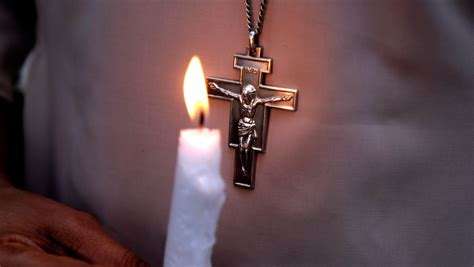For more than 13 agonizing years, Waris Masih, a Christian man from Muzaffargarh, endured the unbearable cruelty of wrongful imprisonment. Accused of a double murder he did not commit, Masih languished behind bars while his life, family, and dignity slipped away with every passing day. But in 2025, after a protracted legal battle marked by heartbreak, hope, and sheer perseverance, the Lahore High Court finally acquitted him — a long-overdue vindication that shines a stark light on the deep flaws plaguing Pakistan’s criminal justice system.
Masih’s ordeal began in 2013 when he was arrested for allegedly killing his former wife, Kaneez Fatima, and her second husband, Muhammad Ali. The case was built on shaky ground: the FIR registered in late 2012 was rife with contradictions and suspicious delays. The complainant claimed Masih was driven by revenge after learning that Fatima had remarried and converted to Islam while he was imprisoned for a prior offense. Seven accused, including Masih, were alleged to have attacked the couple with guns, axes, and sticks.
Yet, as years unfolded, the story told by the prosecution began to unravel. The eyewitnesses, far from being credible observers, were “chance witnesses” with conflicting testimonies and no clear reason to be at the scene of the crime. The FIR itself was lodged after a mysterious 12-hour delay, suggesting a narrative shaped more by consultation and fabrication than by truth.
Despite these glaring flaws, Masih’s fate took a cruel turn: while six others accused were acquitted for lack of evidence, Masih was sentenced to death on the double charges. For him, the nightmare worsened—his life hanging by a thread, his family’s cries unheard, and the slow grind of a broken system dragging him further into despair.
The tireless intervention of the AGHS Legal Aid Cell, a beacon of hope for Pakistan’s most marginalized, finally shifted the tide. Founded by the late Asma Jahangir—one of the country’s most courageous human rights defenders—AGHS’s lawyers painstakingly combed through the case, exposing its weaknesses and fighting relentlessly for justice.
Advocate Shabbir Hussain, who led Masih’s defense, revealed the shocking lapses: the forensic evidence did not link Masih to the murders; bullets found at the scene did not match the alleged weapon; no light source was mentioned during the night-time crime, making the entire scenario improbable; and the postmortem reports were delayed, weakening their reliability. Simply put, the prosecution failed to prove guilt beyond reasonable doubt.
“This was not just a flawed case,” Hussain said. “It was a miscarriage of justice. And yet, the trial court handed down a death sentence based on such fragile grounds. We must ask ourselves: how many more Waris Masihs are rotting in prison, condemned by courts despite the absence of credible evidence?”
Masih’s release is not just the triumph of one man’s innocence; it is a damning indictment of systemic failure. Punjab’s prisons are overflowing, with under-trial prisoners—many minorities and vulnerable individuals—accounting for a staggering portion of inmates. The overcrowded cells and sluggish judicial machinery mean countless innocents remain trapped in limbo, often for years, deprived of basic rights and hope.
Rubina Shaheen, Women Protection Officer at AGHS, emphasized that these failures disproportionately impact the poor and marginalized, whose voices are drowned by prejudice and neglect. “Discrimination in our prisons is often linked to socio-economic status, not just religion or ethnicity,” she explained. “The system is broken, and until it is reformed, people like Waris Masih will continue to pay a terrible price.”
The shadows cast by wrongful convictions like Masih’s extend far beyond the prison walls. They corrode trust in the judiciary, embolden corrupt practices, and perpetuate cycles of violence and despair. The stakes are human lives—dreams shattered, families torn apart, futures stolen.
Waris Masih’s long-awaited freedom is a victory for truth, but it is also a call to action—a demand for judicial accountability, forensic integrity, fair trials, and humane treatment of prisoners. Until Pakistan’s justice system is overhauled and its courts equipped to serve justice rather than perpetuate injustice, the nightmare will continue for thousands of others still caught in its web.
For Waris, the journey from condemned prisoner to free man has been arduous, but his story is a beacon of resilience and a reminder that justice, though delayed, must never be denied.
